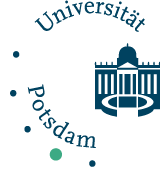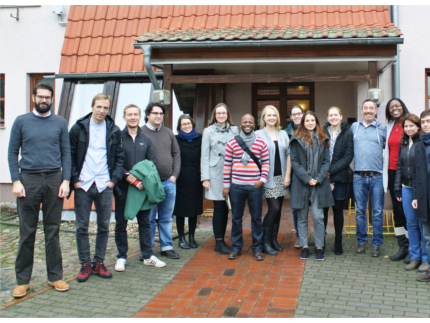Research processes in the field of Public Administration and Public Policy – challenges of concepts and methods
From 8 to 11 November 2015, eleven doctoral researchers and four senior researchers from universities across Europe gathered in Dahnsdorf – a village in Brandenburg. They convened for the four-day WIPCAD PhD Workshop on “Research processes in the field of Public Administration and Public Policy – challenges of concepts and methods”, organized by WIPCAD Doctoral Researchers Basanta Thapa and Ina Radtke.
Central to the workshop was the discussion of conceptual and methodological concerns in the doctoral researchers’ PhD projects. Following the format of “peer supervision”, the PhD students formed small groups where three to four participants focused for a full hour on one PhD project and any related concerns. According to the nature of the concerns, these groups were categorized into a theory, method, operationalization and access cluster. In the theory cluster, common concerns related to the integration of different theoretical and epistemological approaches and how to theorize the empirical research puzzle were discussed. During the method cluster, rephrasing the research question to render it receptive to certain methodologies as well as case selection strategies and the justification of specific epistemological stances were discussed. The operationalization cluster was then mainly concerned with how to define and link variables, where to focus the analytical attention and how to uphold research ethics. The access cluster finally focused on how to market one’s research to gain access to interview partners and documents, and also on how to best prepare for interviews.
Complementing the peer supervision sessions, the invited senior researchers shared experiences and insights from their PhD projects. Eva-Maria Euchner (LMU München) spoke on managing ambitions as a junior researcher and how to organize the research process from operationalization to data collection as well as on structuring the writing process and the importance of maintaining a healthy work-life balance. Caspar van den Berg (Uni Leiden) shared his experience of moving in and out of academia, raised the question of what kind of academic you want to be and highlighted the potential of strategic activities beyond the PhD dissertation. Thurid Hustedt (FU Berlin) presented advice on publishing in journals and peer review processes. Finally, Julia Fleischer (Uni Bergen) talked about the distinct character of article-based dissertations, in particular with regards to finding the common theme throughout the papers and strategic co-authoring.
Looking back at the workshop, all participants received valuable comments on their projects and struck new professional relationships and friendships. The peer supervision sessions fostered intense exchanges and provided the time to fully understand projects, questions, and comments despite the rather diverse backgrounds of the participants.

